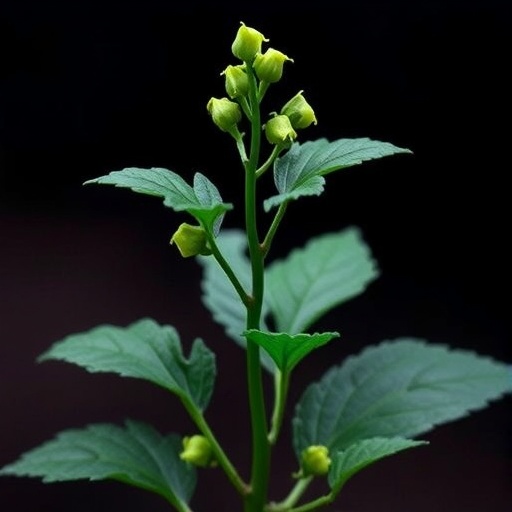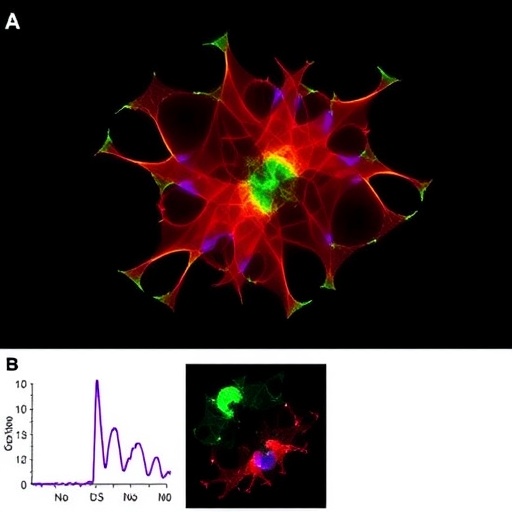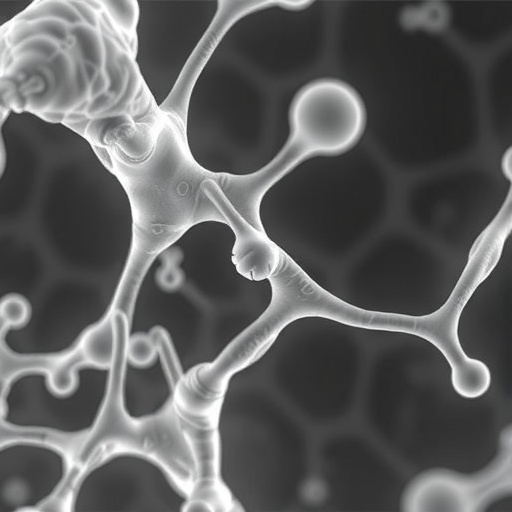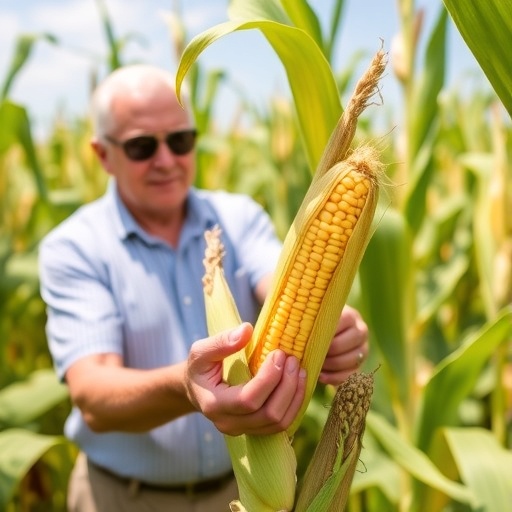PROTECT YOUR DNA WITH QUANTUM TECHNOLOGY
Orgo-Life the new way to the future Advertising by Adpathway
Agricultural food waste is emerging as a critical area of focus within the realms of sustainability and environmental science. As society grapples with the staggering consequences of food waste, researchers are on a quest to find innovative solutions that not only address waste management but also unlock the potential of underutilized resources. Recent advancements in bioprocessing techniques have led to the extraction and characterization of bio-emulsifiers from microbial sources, specifically targeting strains like Pseudomonas aeruginosa. This research reveals the dual benefits of reducing food waste while developing sustainable alternatives within the food industry.
The study led by Kavitha et al. sheds light on the promising applications of bio-emulsifiers derived from the microbial world, particularly focusing on Pseudomonas aeruginosa. Bio-emulsifiers are surface-active agents that play a vital role in stabilizing emulsions, which are crucial in various food formulations. The significance of these natural emulsifiers cannot be overstated, as they offer advantages over synthetic counterparts, including enhanced stability, lower toxicity, and compatibility with diverse food products.
To undertake this research, organic agricultural food waste was collected, providing a rich substrate for the growth of Pseudomonas aeruginosa. Utilizing biowaste not only mitigates environmental impact but also fosters a circular economy. The ability to harness waste products for bioproduction aligns with principles of sustainability, where resources are recycled and reused, minimizing the pressure on landfills and the environmental footprint of food production processes.
The extraction methods employed in this research were pivotal to the successful characterization of bio-emulsifiers. Standardized procedures were adapted to maximize yield and purity, allowing for a comprehensive analysis of the microbial extracts. By employing techniques such as solvent extraction and ultrafiltration, the researchers ensured that the bio-emulsifiers obtained were suitable for subsequent testing in food applications. This laboratory protocol underscores the meticulous approach necessary for isolating high-quality bioproducts capable of performing effectively in food systems.
Following extraction, the characterization phase provided insights into the physical and chemical properties of the bio-emulsifiers. An array of analytical techniques, including nuclear magnetic resonance (NMR) spectroscopy, elemental analysis, and surface tension measurements, were utilized to confirm the structure and efficacy of the extracted emulsifiers. These analytical tools offered a deeper understanding of how these bio-emulsifiers behave in emulsion systems, contributing to formulations with improved sensory and stability profiles.
When attempting to incorporate these bio-emulsifiers into food applications, the researchers evaluated their performance in terms of emulsification capacity, stability, and sensory qualities. Experimental trials demonstrated that bio-emulsifiers from Pseudomonas aeruginosa not only exhibit superior emulsification properties but also contribute to the mouthfeel and texture of various food products. This presents an exciting opportunity for food manufacturers looking to innovate while adhering to natural and sustainable ingredient sourcing.
Another remarkable finding from this research was the potential of microbial bio-emulsifiers to act as natural preservatives. In an era where health consciousness influences consumer choices, products that offer dual functionality of stability and preservation are gaining traction. Utilizing bio-emulsifiers could extend the shelf life of food without reliance on synthetic preservatives, addressing both consumer safety and health concerns associated with artificial additives.
The broader implications of this research extend beyond the immediate context of food applications. The valorization of agricultural food waste through bioprocessing is a significant step toward sustainable practices that can be replicated across different industries. As more organizations embrace the principles of the circular economy, the insights gained from studies like those of Kavitha et al. provide a roadmap for innovation in waste management and resource utilization.
Moreover, the integration of bio-emulsifiers into the food system has the power to enhance product perception and marketability. As consumers become increasingly aware of their choices’ environmental impact, products leveraging sustainably sourced ingredients stand to gain competitive advantages. By positioning themselves at the intersection of health and sustainability, food companies can appeal to a growing demographic that values ethical considerations in their purchasing decisions.
Collaboration between academia, industry, and policymakers is essential to realize the full potential of bio-emulsifiers in food applications. By supporting research initiatives and promoting sustainable practices, stakeholders can drive change in dietary habits that favor waste reduction and environmentally friendly technologies. Public awareness campaigns aimed at educating consumers on the importance of sustainability could catalyze demand for products featuring bio-emulsifiers, effectively driving market shifts toward greener alternatives.
Moving forward, challenges remain in scaling up the extraction and production processes of bio-emulsifiers for commercial applications. Research must focus on overcoming barriers related to production costs, regulatory compliance, and consumer acceptance. These hurdles, once addressed, could significantly enhance the practicality of bio-emulsifier incorporation within mainstream food products, leading to tangible environmental benefits.
In conclusion, the exploration of bio-emulsifiers from Pseudomonas aeruginosa and their role in valorizing agricultural food waste is a promising frontier in food science. As researchers continue to unveil the potential of these natural agents, the food industry stands at a critical juncture. By embracing sustainable practices and prioritizing innovation, it is possible to redefine food production paradigms that are not only beneficial to businesses but also to the planet at large. Ultimately, this integrated approach represents a pivotal shift toward a more sustainable and environmentally responsible future in food systems.
Subject of Research: Valorization of Agricultural Food Waste through Bio-Emulsifiers
Article Title: Valorization of Agricultural Food Waste: Extraction and Characterization of Pseudomonas aeruginosa Bio-Emulsifiers for Sustainable Food Applications.
Article References:
Kavitha, D., Ramyadevi, R., Sureshkumar, M. et al. Valorization of Agricultural Food Waste: Extraction and Characterization of Pseudomonas aeruginosa Bio-Emulsifiers for Sustainable Food Applications.
Waste Biomass Valor (2025). https://doi.org/10.1007/s12649-025-03275-3
Image Credits: AI Generated
DOI: 10.1007/s12649-025-03275-3
Keywords: Bio-emulsifiers, Sustainable Food Applications, Agricultural Waste, Pseudomonas aeruginosa, Circular Economy.
Tags: advantages of bio-emulsifiers over syntheticagricultural waste to resource transformationbioprocessing techniques for wastecircular economy in agricultureenvironmental sustainability in food productionfood waste managementinnovative waste reduction strategiesmicrobial sources for emulsifiersnatural emulsifiers in food formulationsPseudomonas aeruginosa bio-emulsifierssustainable food industry solutionsunderutilized resources in agriculture


 6 hours ago
12
6 hours ago
12





















 English (US) ·
English (US) ·  French (CA) ·
French (CA) ·